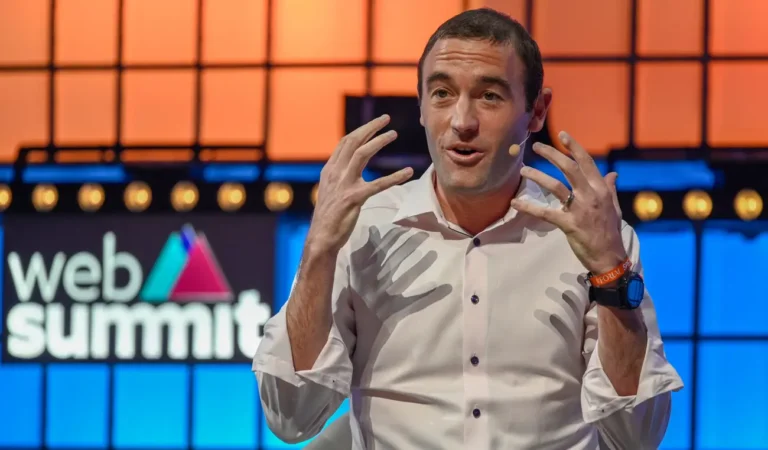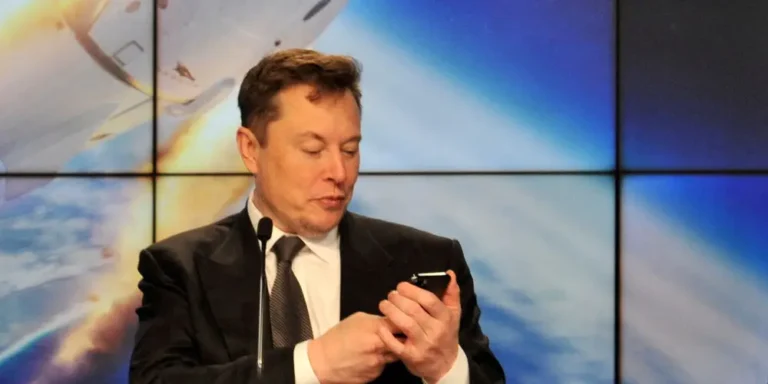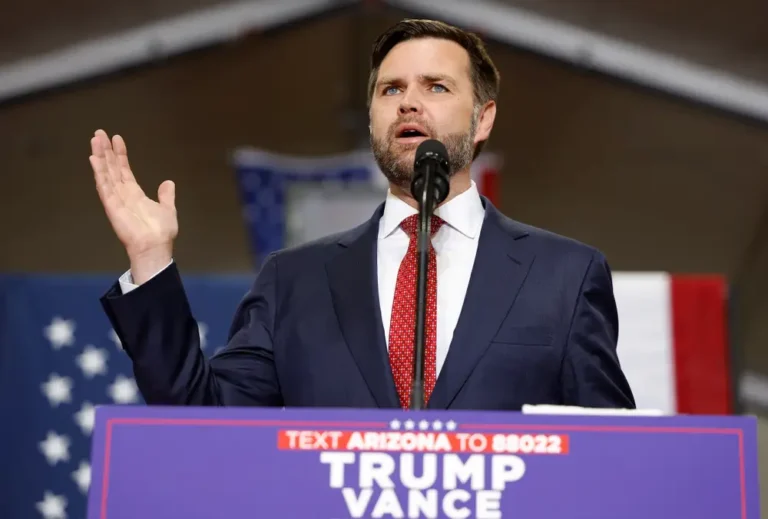The closing note of the 2024 campaign: How dare you?

From an offensive joke about Puerto Rico to garbage trucks to Mark Cuban, each campaign tried to harness outrage in the final week of the election.
At the end of a rally in Wausau, Wisconsin on Monday, Sen. JD Vance of Ohio called on Americans to toughen up.
“I think that we have to stop getting so offended at every little thing in the United States of America. I’m just — I’m so over it,” said Vance, the GOP’s vice presidential nominee. “Our country was built by frontiersmen who conquered the wilderness. We are not going to restore the greatness of American civilization if we get offended at every little thing.”
Vance was responding to a question about comedian Tony Hinchliffe’s joke about Puerto Rico being a “floating island of garbage” at a Trump rally the previous day.
By Tuesday, Vance himself seemed offended, taking to X to weigh in on a clip of President Joe Biden responding to the Hinchcliffe controversy — and appearing to refer to former President Donald Trump’s supporters as garbage. “This is disgusting,” Vance wrote. “There’s no excuse for this. I hope Americans reject it.”
In the final week of the 2024 presidential election, fury and indignation have been the name of the game, with one outrage cycle leading almost seamlessly into the next — and both sides doing their best to capitalize on the moment at each turn.
Hinchliffe’s Puerto Rico joke spawned the initial news cycle (and within 24 hours, a new digital ad from Vice President Kamala Harris’ campaign). Then came Biden’s own gaffe on Tuesday night (the White House has insisted that he was referring to Hinchliffe’s “demonization of Latinos.”) Seizing on the moment, Trump climbed into a garbage truck branded with his campaign’s logo in Wisconsin on Wednesday.
But at a rally soon after, clad in the bright-orange vest of a garbage truck operator, Trump said he would protect women “whether the women like it or not,” which Harris and her campaign quickly sought to amplify, casting the remarks as an attack on women’s agency and autonomy.
On Thursday, Trump and his allies got their own talking point on women when billionaire investor Mark Cuban, a highly visible Harris supporter, went on “The View.” When Cuban was asked why Trump hadn’t campaigned with former UN ambassador Nikki Haley, he said that people “never see” Trump “around strong, intelligent women.” That’s since led to a flood of social media posts and op-eds from female GOP politicians. Cuban apologized, saying he’d unintentionally “set myself up” for a negative sound bite.
Thus, no one heeded Vance’s call — including the Ohio senator himself. The motivation for both campaigns to harness outrage to their advantage in the closing days of the election is simply too strong.
It’s all about breaking through the noise
The last week has been all about candidates trying to create “breakthrough moments” to benefit their campaigns, leveraging instances where a candidate or someone associated with them was seen as demeaning a large swath of the American public.
There’s a lot of noise in the course of a presidential campaign, with candidates (and their surrogates) giving interviews and appearing at rallies virtually every day. For the average voter, particularly those who are less engaged, it’s pretty easy to tune it all out — unless there’s a moment when one particular event dominates headlines, filters down organically to social media, and spurs conversations at dinner tables.
Some breakthrough moments are naturally built into the campaign schedule. Historically, candidates have received a “convention bump” in their polling after their respective nominating conventions, driven by the largely positive coverage that blankets TV networks, newspapers, and, increasingly, social media.
Debates also provide natural breakthrough moments, with tens of millions of voters tuning in to watch the candidates face off. But the last debate was one month ago, and the broad contours of the race have remained relatively static since then.
That leaves it to each campaign to try to generate their own moments, like when Trump did a photo-op at McDonald’s. If that fails, they can try to leverage other developments to their advantage.
Both candidates tried to do that this week. Trump’s Madison Square Garden rally was supposed to spur media coverage about his inroads with voters who aren’t traditionally Republican, while Harris’s Ellipse rally was supposed to highlight January 6 and her campaign’s closing message.
In both cases, they were upstaged by secondary moments that their opponents successfully latched onto, with Hinchcliffe drowning out Trump’s rally and Biden spoiling Harris’ rally.
Outrage is a powerful motivator in politics, and over the last several days, both campaigns have tried to keep up the momentum. It’s not hard to see why: In recent memory, both Democratic and Republican presidential candidates have suffered as the result of gaffes made late in the campaign, whether it was Mitt Romney’s “47%” comment in 2012 or Hillary Clinton’s “basket of deplorables” comment in 2016.
And in an election where the media ecosystem is more fragmented than before, social media virality and “meme” value are especially important.
It’s why Trump donned a bright orange vest and climbed into a garbage truck, and it’s why his supporters are responding to Cuban’s comments with a social media campaign. These sorts of moments generate far more attention than a policy rollout.
In short, with just four days to go until Election Day, don’t be surprised if we see one or two more last-minute outrage cycles before then.






